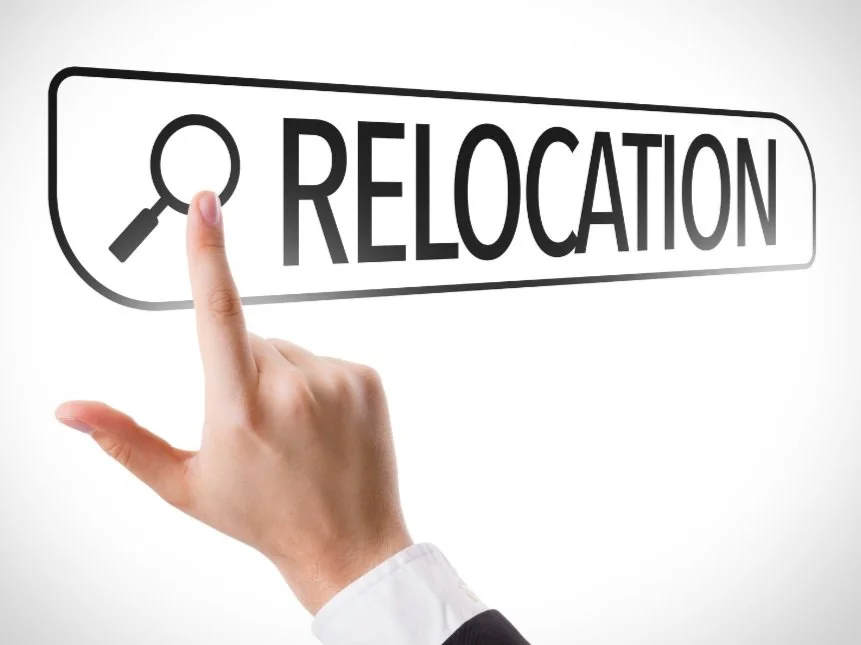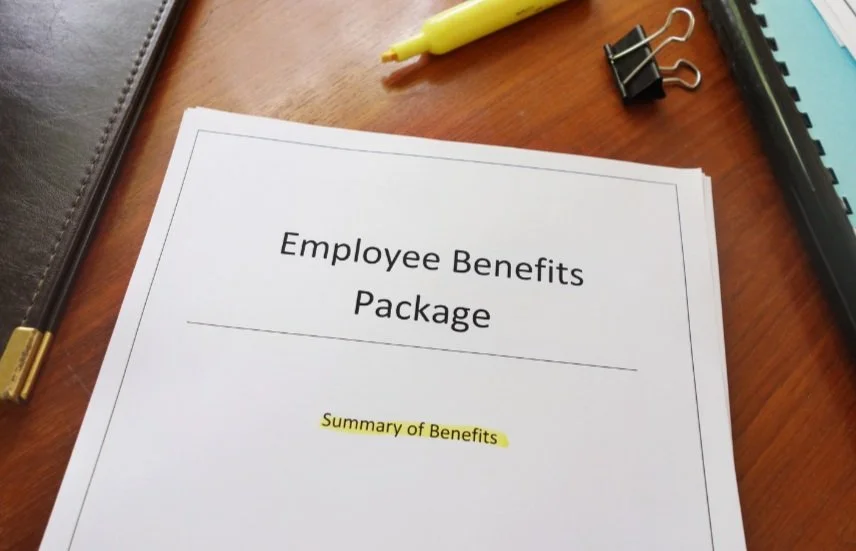How Does a Job Relocation Work?
(Plus Steps and Tips)
If an employer asks you to move for your job, it is likely that they will offer you a relocation package. This is essentially a compensation deal that makes going through a move worth the effort for you. By helping employees with the transition of moving, companies can improve their employee retention rates and ensure they are getting the best talent at all of their locations. In this article, we explain how relocation works and how to negotiate a relocation package.

What is a relocation?
Relocation in a professional sense is when an employer asks you to move in order to be closer to their office. Relocations are common for highly skilled professionals who attract the attention of employers from different cities. You may also experience having to move for your current employer. They may want to promote you to work at one of their other locations or find that your expertise would be better suited elsewhere. When an employer asks you to move for a job, they will typically offer you a relocation package to make moving worth the time, money and adjustment.
What is a relocation?

How does relocation work?
When preparing for your relocation, you'll follow these steps:
Negotiate a relocation package. Before accepting any job offers or promotions, you need to ask your employer how they plan to assist you throughout your move. See if they have any services that will make your move easier or if they plan to reimburse you for any of your moving expenses. You'll need to reach out to their human resources department to ensure you are getting a fair deal.
See your new office. Prior to your move, schedule a time to go see your new office. This way, you can introduce yourself to other employees and get a better sense of what your workplace is like. Take a few days to explore your new city and get acclimated to what your new life may look like.
Reach out to your coworkers. Moving to a new city is an exciting opportunity. Since you might not know anyone there, reach out to your new coworkers. See if they would want to grab coffee with you and chat about any advice they might have for your big move. Making these connections right away will make the move much easier to get used to.
Calculate your cost of living. Prior to signing a new lease or buying a home, consider how much it will cost to live in this new city. Consider the prices of nearby restaurants, transportation, rent and property taxes.
Forward your mail. Make sure to change your address everywhere you receive mail. In case any mail is still on the way, make sure to forward it to your new address. When starting a new job, you may be getting important forms in the mail, so make sure you are keeping track of them.
Move in before you start work. If you have enough time, it's best to move into your new home before you start your new job. This way, you can get organized and settled. If your employer wants you to start right away, see if they will pay for your hotel or short-term lease until you find a permanent home.
Track all of your moving expenses. Employers typically have you submit all of your moving expenses if they offer a relocation package. Make sure to save all of your receipts in one organized place. Things like travel expenses, moving supplies and truck rentals may all be covered under your employer's moving policy.
Research your state's tax laws. When you move to a new state, you're going to experience different income tax laws. Make sure to look into these so you have a general idea of how many taxes you might owe at the end of the year. Considering this can help you budget more accordingly.
How does relocation work?

What to expect in a relocation package
When an employer offers you a relocation package, they might include the following perks:
Relocation trips: Looking for your new home can cost a lot of money, especially if you are moving across the country. Some employers may reimburse you for your airplane tickets, hotels, dining, transportation and anything else involved in this trip to locate your new residence.
Home buying and selling expenses: When buying or selling a home, an employer might cover your closing costs and real estate commissions. If you need to break the lease on your rental, your employer may cover any penalties or fees associated with doing this. Likewise, when signing a new lease, they may cover any move-in fees you need to pay.
Job search assistance: If your spouse needs to find a new job due to your move, your employer may provide some resources to help them find employment.
Temporary housing: Some employers may want you to start working sooner than you can buy a house or sign a new lease. They may cover any expenses related to living in rental housing or a hotel for a set period of time. This typically includes any utilities as well.
Transportation: Employers usually reimburse any travel costs associated with your move. If you are waiting to get your car, they may also pay for your rental car for a period of time.
Moving expenses: The cost of moving can quickly add up when you rent a moving truck, buy packing supplies, rent a storage unit and hire movers. Your relocation package may cover these total expenses or give you a stipend that you are free to spend.
Moving help: Your company may even help you coordinate your movers and any other details related to your move.
What to expect in a relocation package?

Relocation package negotiation tips
Follow these tips when negotiating your relocation package:
Have your number ready. While some employers will give you a set moving allowance, others may ask you how much money you will need. Before meeting with them, make sure to have all of your anticipated expenses clearly written down. Make sure to break them up by category so your new employer can get a clear understanding of what you might need money for.
Be clear about your needs. The needs of every new employee are different. Before signing anything, make sure you are considering everything you need to move comfortably. For example, if you have a family, explain to employers what they might need for a smooth transition. Moving is a big adjustment, so you want to make sure your employer is properly taking care of you.
Decide if you want a reimbursement or a lump sum. One may be more beneficial than the other. If an employer is offering a large lump sum, you could try to keep moving expenses low so that you can save the additional money. If you know your moving expenses will be high, then reimbursement may be a better plan for you.
Explain the advantages for the company. While many employers want you to have a comfortable move, they still want what's best for the company. For instance, you can explain that if they give you a better relocation package offer, you can start your job sooner. Likewise, you could say that if they give you moving assistance, you'll be able to focus on your work better.
Ask for the offer in writing. Make sure your new employer includes every single item they will reimburse you for. This way, you can make sure you are on the same page as your moving expenses start adding up.
Know when to walk away. Employers are under no obligation to offer you a relocation package. You need to decide how important the terms of your agreement are and decide when to walk away from a deal that doesn't suit your needs.
Relocation package negotiation tips

Is international relocation any different?
International relocation is different than domestic relocation for the following reasons:
Work visas: If you plan to work in a foreign country for a lengthy period of time, you're going to need to get a work visa. Your employer may help you take care of this process and reimburse you for any associated costs.
Higher costs: Moving internationally is often more expensive than moving domestically. There are many more factors to consider, and transportation tends to cost more.
Shorter assignment lengths: While domestic relocation tends to be permanent, international tends to be more temporary. This is due to visa requirements and tax laws.
Adjustment period: While your own country may have a lot of different cultural nuances, moving to another country is a much bigger adjustment. Along with getting used to their way of life, you need to be aware of their laws and be able to speak their language.
Is international relocation any different?

How to choose a relocation package offer
Follow these steps to choose the right relocation package for your needs:
1. Consider your expenses
If moving is going to be expensive, it's important that you are getting a relocation package that covers these costs. Prior to agreeing to anything, make a list of everything you'll need to spend money on during this move. This can give your new employer a better idea of how much they may need to reimburse you.
2. Think about your needs
The needs of a person moving on their own are much different than someone with a family. If you are married or have a partner, you need to consider what is best for them too. They may need to find a new job if you relocate. Likewise, they may not be able to move at the same time as you.
If you have children, think about whether they will finish the school year at their current school or a new one. All of these factors can help you determine what you will need from your new employer, whether it be moving assistance or temporary housing.
3. Look at your new salary and benefits
If an employer is offering you a much higher salary and benefits than your current job, then a less comprehensive relocation package might not be a deal-breaker. You need to decide if moving for the new job is cost-effective and beneficial to you. Moving is expensive and a quality employer should realize that their new employees might need some help or reimbursement.
How to choose a relocation package offer

Click here to schedule a consultation to plan your relocation


